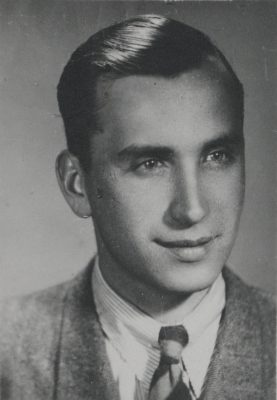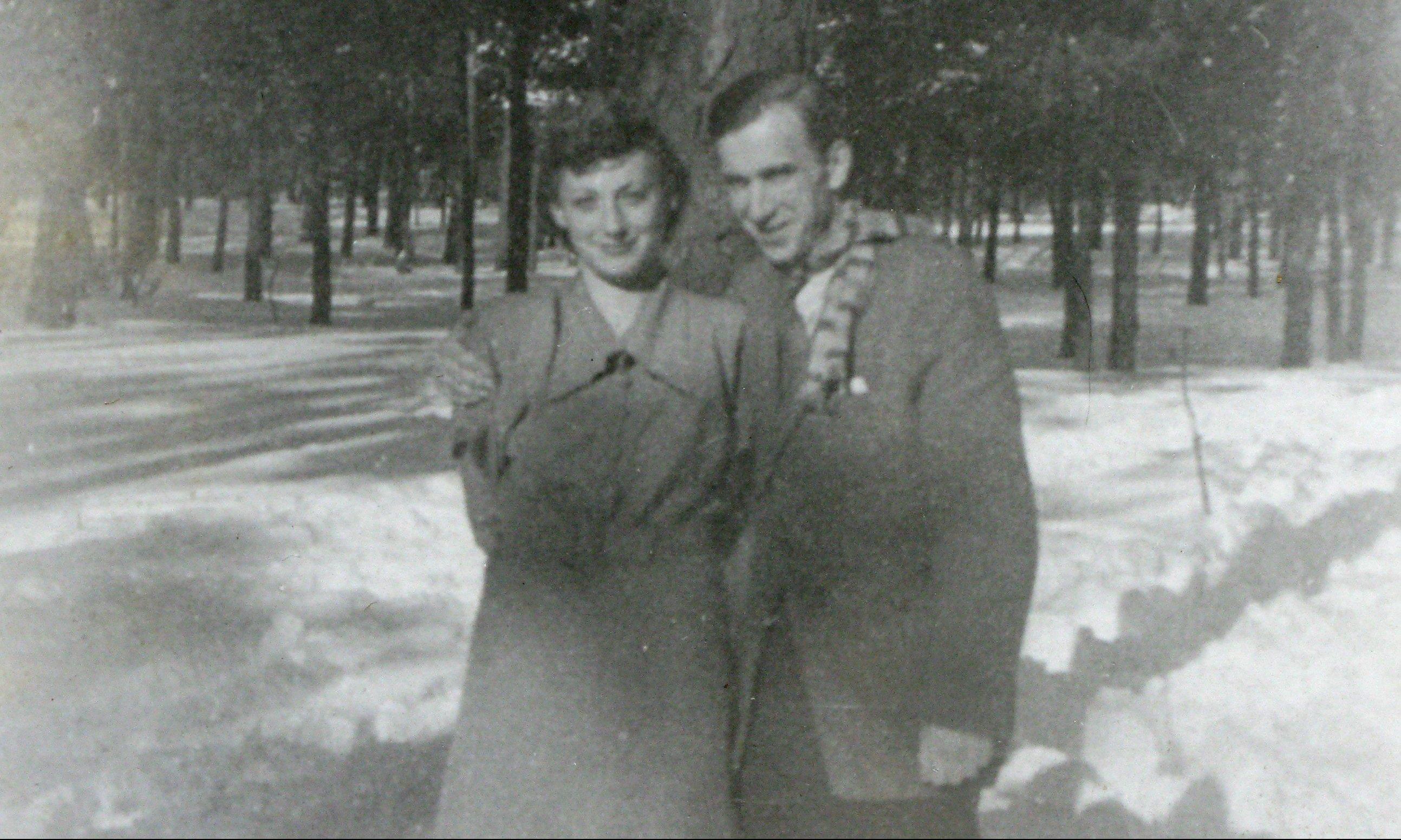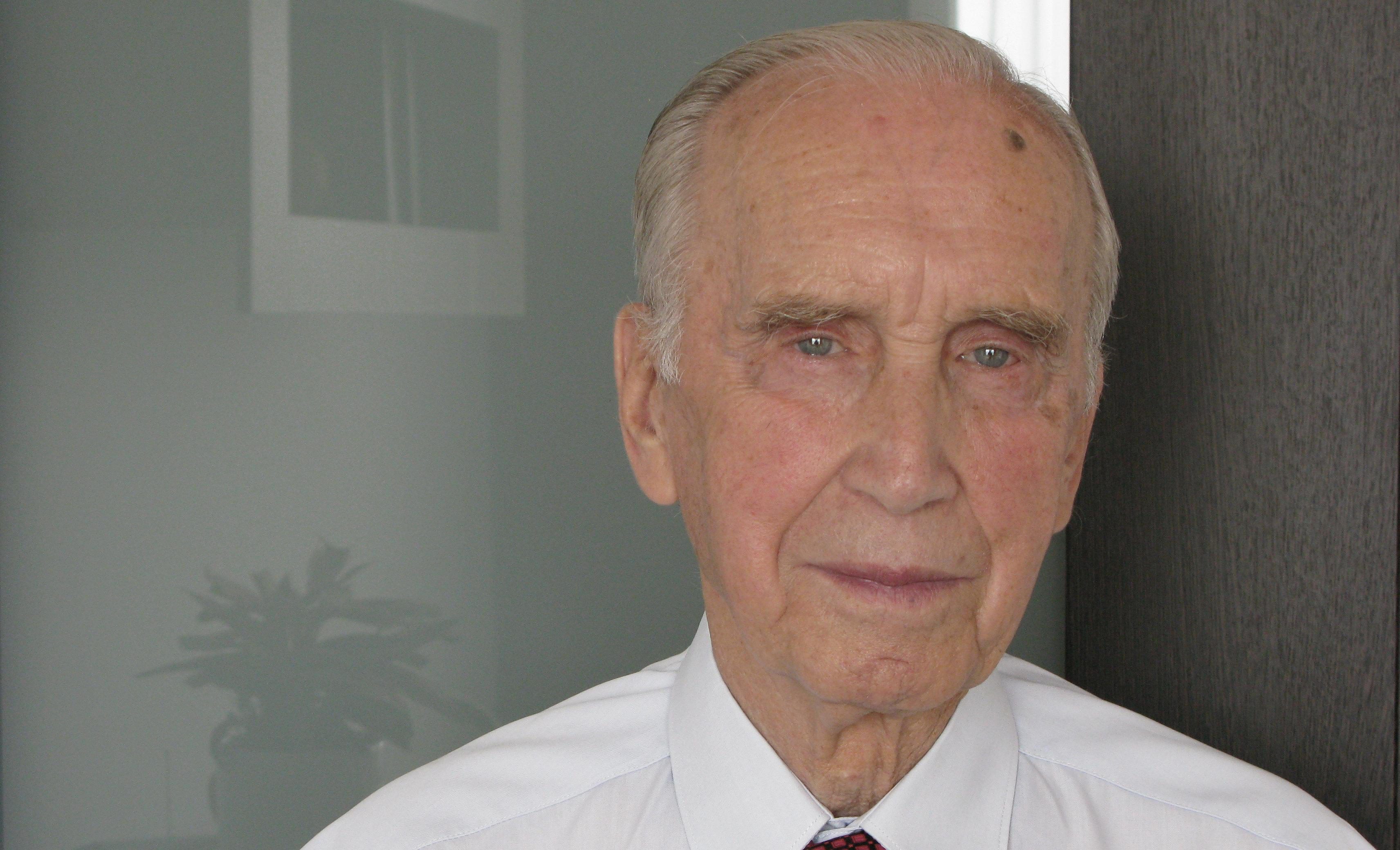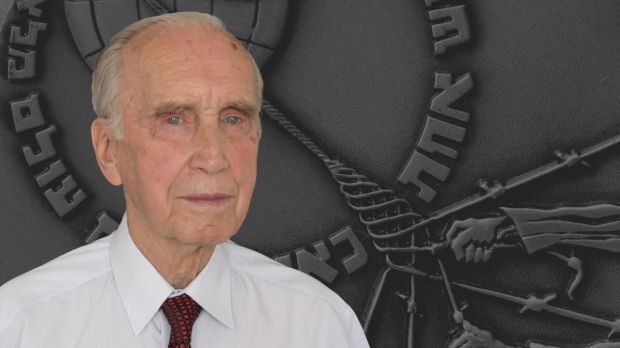Józef Walaszczyk, born in 1919, called the second Schindler. During the Second World War he saved the lives of 53 Jews and in recognition of this was in 2002 awarded with the title of the Righteous Among the Nations. This interview was conducted in anticipation of Walaszczyk’s (and other Righteous) meeting Pope Francis during his sojourn to Auschwitz.

Why did you put your life on the line saving other people’s lives?
This was something I grew up with and my personal attitude. We were the first generation born after the First World War, we were patriots and Christians. When Hitler invaded Poland, we naturally put up resistance. This was also a matter of national solidarity – Jews were different from us, Poles, but they were one of us.
In a way you saved Irena Front because of her beauty.
I met a marvelous girls and we became friends. I learned that she was Jewish only when the Gestapo appeared suddenly in the hotel we were staying at. Then Irena told me that her name was not Bartczak but Front and that she was Jewish.
What was your first reaction?
On the one hand I was angry that she had not bothered to tell me about it earlier. On the other hand I never panic but try to come up with a way out of a toughest bind.
You quickly hid Irena behind a wardrobe and pretended to the Gestapo officers that you have a stomach upset.
I do not want to brag too much, but I had nerves of steel. After all, I was arrested a few times and had to run for my life.
You were nearly executed, too.
At a station in Nowe Miasto the Germans surrounded the train I was on, transporting documents for the clandestine Home Army (AK). The Germans started to search the passengers. Fortunately, my comrades in arms from the Home Army were watchful and my luggage miraculously disappeared somehow.
A passenger without luggage seemed suspicious for the Germans.
They started to interrogate me, beating and kicking. They had me jump and one soldier was shooting a round of ammunition under my legs and the other one shot above my head. Then they resolved to execute me.
I was standing in front of a firing squad and the only two words I was waiting for were the words: … drei, Feuer! I closed my eyes not to see the fire of the rifle and at this moment I heard: Halt! I could not believe I was alive.
It turned out this was a case of “out of the frying pan and into the fire.”
True. Commandant Hoffman said that this would be too lenient punishment for me. He said: “I will take you to the police precinct and there we can talk.” I wished he had shot me down as I was not sure if I would survive the interrogation.
There Germans arrested as many as 300 people. They arranged us in a couple of rows and had us go to a military police station. When we were on our way, a motorcycle drove up to Hoffman and a military policeman handed him an envelope. This was a letter from the Gestapo that I was to be released with immediate effect as I was “instrumental for the operation of the factory.”
This was a factory of potato flour you were the manager of.
Right, I was saved by a German who knew me, Mr. Albrecht. If the Nazis had shot me down, the document would have been received by a dead man.
You employed some 200 staff in your factory, including 30 Jews.
When the Germans were to close down the ghetto in Rawa Mazowiecka, my Jewish friend Mr. Wengrow came to me and asked me to employ a 40-strong group of Jewish young people, including his children. I wanted to help him as he had done me a favor before.
What kind of favor?
I went completely broke playing cards once in Warsaw (laughter). I came back home and tried to figure out what to do. I wondered whether I should ask my mother to lend me money to pay off my debt.
An embarrassing situation.
Really embarrassing. This Jew, Wengrow, tells me: “Why are you so sad, Mr. Ziutek. You must be having a problem. I know; you could use some money. How much?” He lent me the money. So when he approached me asking to employ the young Jews, I went to the Arbeitsamt (labour office) and tried to talk this over with director Miller. He took out a gun and said: “You want to bribe a German to save Jews?” Somehow, however, we came to an agreement although the director’s conditions were tough: I could not employ 40 but only 30 people, who needed to obtain a stamp from the Arbeitsamt every two weeks, and the stamp could only be received in exchange for a small “facilitation payment.” I would visit him for almost 2 years to get the stamp and to pay him a bribe.
Until the Germans zoomed in on the factory…
One day I called the Arbeitsamt to arrange the next meeting to have the permits extended. The secretary told me that Mr. Miller was not in the office and she did not know when he would be back, but she wanted me to come down as soon as possible. I felt that something was in the air. I told my staff not to come to work and warned them that as soon as they saw German trucks, they had to hide; those who listened to me survived.
You are sometimes called the second Schindler.
These were Roman Polański’s words. After reading my memoirs he wrote me a letter saying that had he known his story prior to shooting The Pianist, he would have made a movie about me.
Where did you get the money to pay Miller?
Managing the factory, I was in charge of big amounts of money which was to be taken by the Germans anyway…
In order to save Irena (another time), you had to collect a kilogram of gold. In five hours at that.
A friend called me and said that Irena had been detained by the Gestapo. I went to the police precinct; the Home Army had its agent there. Once at the police station, I learned that Irena had been detained with a group of 20 other Jews. And if I wanted them to release her, I had to do the right thing, namely to collect one kilogram of gold by 5 pm; it was around noon. Then the Germans would strike the case of the record and would release the Jews.
You made it.
I had to make it; otherwise Irena would have died.

This way you saved 20 people you did not even know.
The Gestapo drove them in a van and pulled up at my home. When they made sure that I had collected the gold, they released the Jews, who jumped off the car and disappeared into the dark. There is no other case, I guess, that the Gestapo in Warsaw would “willingly” release 21 Jews.
You broke off with Irena after the war…
Our relations under normal circumstances started to deteriorate. Irena was later in a relationship with my friend from London.
Yet is was she who wanted you to become the Righteous Among the Nations.
She called me once saying that she would like to meet up. When we met, she told me that she had not long to live and wanted to submit my name. I consented. And here we dealt with a funny situation. After a time Irena’s daughter called me saying: “Some Jews keep calling us asking about you. What is this all about?” It turned out that Irena’s daughter had no idea of her mother’s Jewish descent. Recently Irena’s grandson approached me to learn more about his grandmother, who is deceased now.
Is there anything you regret now?
In hindsight, I think that sometimes I risked too much.
When, for example?
When I entered the Warsaw ghetto. Many people appreciate my actions now, yet from the time perspective I think this was sheer bravado. A tram was crossing the ghetto but did not stop there. The passengers were guarded by the German police. I bribed the tram driver and the policemen, so that when we entered the ghetto the tram slowed down, I jumped off, pulled up an armband with a Star of David and did some business there. I would come back in the same way.
Why was the risk so extreme?
I had no contingency plan. Nor did I have any guarantee that the tram would pick me up on the way back, or that some spy would not be on board.
What were you doing there actually?
I helped out my friends. These were doctors whom I wished to get out of the ghetto, but they would not hear about it as they had whole families there.
What do you think when you look back on your history?
I have reflected many times on it and I think that had it not been for God’s help, I would not have survived all this. So many times have I managed to save my life in seemingly hopeless situations.
Are you looking forward to the meeting with Pope Francis?
Francis is approachable and open. There is no pride in him and he does not keep his distance. I would like to tell him a lot although I do not know if I would have the chance. Right, I am looking forward to meeting him.


